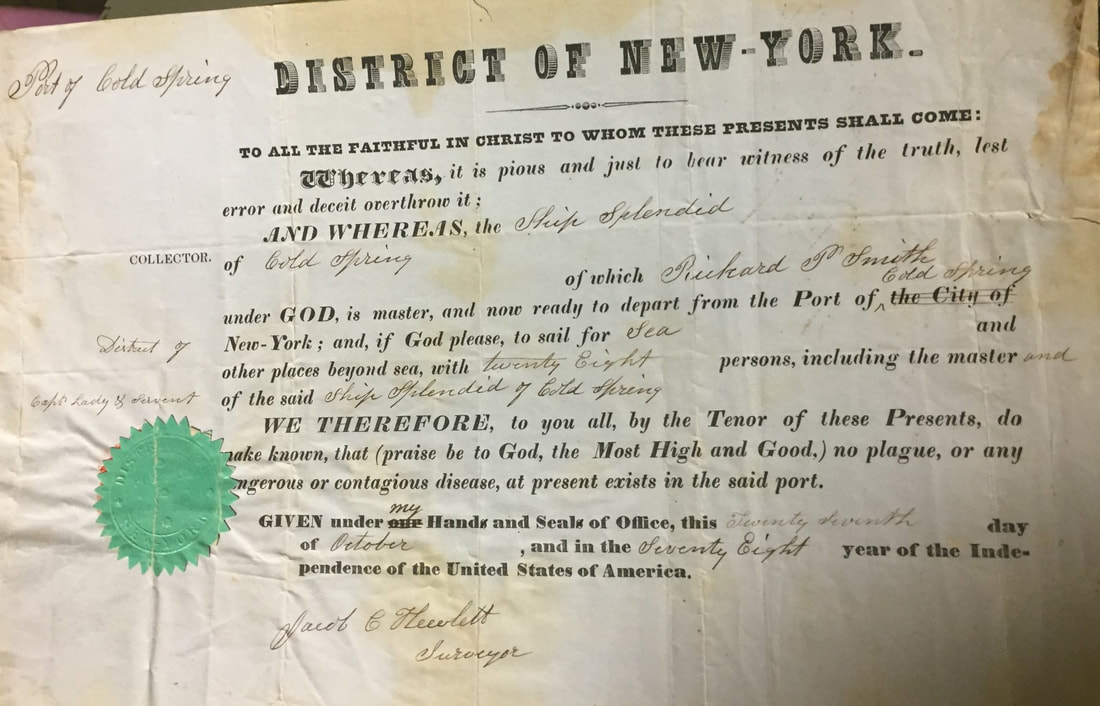|
By Nomi Dayan Have you ever been asked to please stand by? Ever told someone not to barge in? Have you hung on to the bitter end, or been given a clean bill of health? If so, you have spoken like a sailor. Each type of human activity, noted essayist L. Pearsall Smith, has its own vocabulary. Perhaps this is most evident in the speech of mariners. The English language is a strong testament to how humans have been seafarers for millennia, with a multitude of words and phrases having filtered from life at sea to life on land. Today, a surprising number of phrases, words, and expressions still have nautical origins, notably from sailing terminology in the 18th and 19th centuries. While some adopted phrases have fallen by the wayside, many expressions in our everyday language are derived from seafaring. Barge in: Referring to flat-bottomed workboats which were awkward to control
Bitter End: The last part of a rope attached to a vessel Clean Bill of Health: A document certifying a vessel has been inspected and was free from infection Dead in the Water: A sailing ship that has stopped moving Down the Hatch: A transport term for lowering cargo into the hatch and below deck Figurehead: A carved ornamental figure affixed to the front of a ship Foul up: To entangle the line Fudge the Books: While the origins of this term is unclear, one theory connects it a deceitful Captain Fudge (17th century) Give Leeway: To allow extra room for sideways drift of a ship to leeward of the desired course High and Dry: A beached ship Jury Rig: Makeshift or temporary repairs using available material Keel over: To capsize, exposing the ship’s keel Show the ropes: Train a newcomer in the use of ropes on sailing vessel Letting the Cat out of the bag: One explanation links this phrase to one form of naval punishment where the offender was whipped with a "cat o' nine tails," normally kept in a bag Passed with flying colors / Show One’s True Colors: Refers to identifying flags and pennants of sailing ships Pipe Down: Using the boatswain’s pipe signaling the crew to retire below deck A New Slant: A sailor will put a new slant on things by reducing sails to achieve an optimum angle of heel to avoid the boat from being pulled over Slush fund: The ship's cook created a private money reserve by hoarding bits of grease into a slush fund sold to candle makers Steer Clear: Avoid obstacles at sea Taken Aback: Sails pressed back into the mast from a sudden change of wind, stopping forward motion The author is the Executive Director of The Whaling Museum & Education Center of Cold Spring Harbor.
0 Comments
|
WhyFollow the Whaling Museum's ambition to stay current, and meaningful, and connected to contemporary interests. Categories
All
Archives
May 2024
AuthorWritten by staff, volunteers, and trustees of the Museum! |


 RSS Feed
RSS Feed
